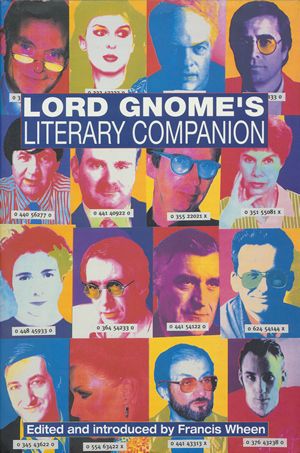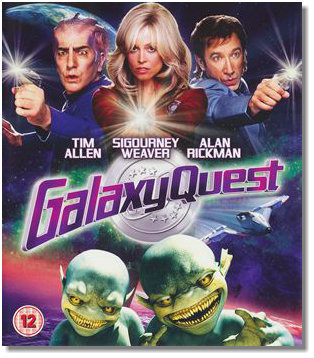2014 — 27 September: Saturday
Apparently, Brian Matthew's "Sounds of the Sixties" can be useful in treating mild depression.1 He's just played the Stones' "Little Red Rooster", which Decca was most reluctant to release as they severely doubted its commercial potential. So it's not just in Hollywood — as asserted by William 'Princess Bride' Goldman — that "nobody knows anything" about what will succeed.
I find hot cups of tea work jolly well, too. In the same way that throwing orange peel out of railway carriage windows keeps tigers at bay. (Slurp.) As does Beethoven, which is why I'm now snaffling both those symphonies from yesterday evening (having first checked my month's download stats). I'll also check to see that I've already got BBC 6Music's "You'll never be 16 again" (just in case).
Yep, I have. Breakfast next, methinks.
Nice (in a way) to find...
... I'm as ignorant of the "rabbit illusion" as Steven Pinker was. Mind you, I did first assume it might have been the ambiguous visual...
... that can be seen, alternately, as a rabbit and a duck. Not so. It's a tactile illusion rather than a visual perception trick. I was amused, too, to learn that the "Curse of Knowledge" is a term that came to us from that splendid hard-science academic field: economics. Pinker's essay lurks a click away behind the ambiguous rabbit. Or do I mean duck?
In richer days (past)...
... before Jeff Bezos came along, Best Beloved, I would clip a book review out of a magazine such as "New Statesman" and file it in the front of the book if and when2 I eventually bought it. Here's a typical example:
 Lord Gnome's Literary Companion, 1994
Lord Gnome's Literary Companion, 1994
I picked this one up in late February 1995 (a few months after its initial publication) while taking Peter with me on one of our regular half-term London bookshop runs / treats. It's astonishing to think this example (click the pic) is now 20 years old. "Motivated by self-interest and an ingrained reluctance to condemn inferior work," Mr Horovitz? Why, the very idea!
I failed...
... to note (and have so far failed to deduce) exactly when I bought my NTSC DVD of "Galaxy Quest" (which means, in all likelihood, I bought it from a Canadian supplier, DVD Box Office [or some such name] that I used in the much earlier days of my web-based ordering). However, in light of Mr Postie's gentle rapping earlier this afternoon the question is now moot as I have a Blu-ray replacement copy lined up for this evening's entertainment:

My original transatlantic DVD was merely rated "PG", but this UK "12-certificate" version warns me it "Contains mouthed strong language". That's a new one on me. I also failed to not(ic)e that I'd not remembered to upload all the updated bits of today's ¬blog to the external server in Texas, so the 'forward' link from yesterday only actually began working about 20 minutes ago. Oops.
Hah! I was mouthing...
... my own bit of strong language a few minutes ago. I took the Malwarebytes scanner out for one of its (very occasional) spins around BlackBeast only to have it suggest — for the first time ever — that I allow it to quarantine one of the DLLs belonging to BBC BASIC, thus stopping it from running. Turns out, on investigation, to be a known and annoying 'false positive' (according to the chap who actually writes this excellent software). Recall the problem with false positives in a slightly more worrying context:
...imagine that you've got a disease that strikes one in a million people, and a test for the disease that's 99% accurate. You administer the test to a million people, and it will be positive for around 10,000 of them — because for every hundred people, it will be wrong once (that's what 99% accurate means). Yet, statistically, we know that there's only one infected person in the entire sample. That means that your "99% accurate" test is wrong 9,999 times out of 10,000!
Terrorism is a lot less common than one in a million and automated "tests" for terrorism — data-mined conclusions drawn from transactions, Oyster cards, bank transfers, travel schedules, etc — are a lot less accurate than 99%. That means practically every person who is branded a terrorist by our data-mining efforts is innocent.
True then. Just as true today. I wonder if the NSA worries about this?
Having watched (and enjoyed) the...
... film, I made a start on one of the documentary extras — an interview with the director, Dean Parisot — only to discover that it reveals the "mouthed strong language". This turned out to be Sigourney Weaver dropping an "F" bomb when confronted by the pointless chompers in one of the basement ducts of the spaceship. The word 'screw' was substituted on the soundtrack, though any lip-reader could clearly see the discrepancy. Kiddy ears are thus safeguarded and a lower rating safely retained in the US. The MPAA comment actually refers to 'mild' bad language.
